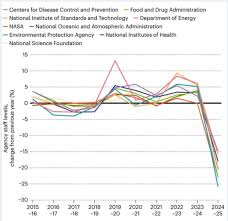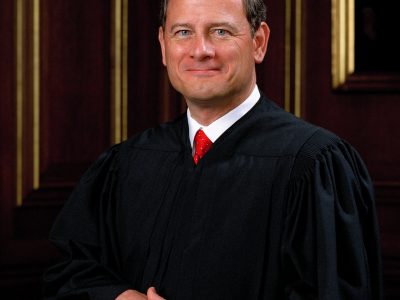The Kavanaugh Court and the Environment
A new appointment would make Justice Kavanaugh the swing voter. Here’s what that would mean for environmental law.
A new appointment by Trump would shift the Supreme Court well to the right, making Brett Kavanaugh the swing voter in many cases. Kavanaugh has clear views about the powers of agencies like EPA. With him as the swing voter, the main strategy used by Obama to make environmental progress would be off limits for future Presidents.
When Obama was stymied by congressional deadlock, he turned to the administrative process. Through broad interpretation of the authority of agencies like EPA, the Obama Administration tackled problems like carbon emissions from power plants and protection of the nation’s wetlands. The Obama Administration looked for ambiguities in existing laws and then interpreted them in favor of broader environmental action.
This type of creative reinterpretation would be impossible under the Kavanaugh Court. The Kavanaugh Court might even strike down some existing environmental laws or new legislation passed by Congress.
Kavanaugh takes a dim view of agencies deciding what he regards as “major” issues. It’s not clear what major means here. It at least includes any major expansion of regulatory authority and maybe any issue of large economic or political consequence. At the very least, Congress would have to clearly empower the agency to decide such an issue.
Kavanaugh has hinted more recently that it might be unconstitutional for Congress to delegate such authority to an agency. Instead, any issue of major importance would have to be settled by Congress itself rather than given to an agency. It would all depend on whether Kavanaugh considered a particular issue to qualify as a major question.
Here are some examples of things that might be considered major:
- Obama’s regulation protecting wetlands, the so-called WOTUS rule, because it would expand the category of wetlands subject to federal protection.
- Obama’s regulation limiting carbon emissions from power plants, because it would uses EPA authority to expand the use of renewable energy rather than simply requiring changes at individual coal-fired power plants.
- Federal air quality standards, because setting the nationwide standards for air pollution has enormous economic consequences.
It’s also possible that Kavanaugh would overrule Massachusetts v. EPA, which gave EPA the power to regulate greenhouse gases. That seems to qualify as a major issue, and Kavanaugh probably wouldn’t think the statute gave EPA clear authority.
Putting aside “major” issues, Kavanaugh would divide the world of agency actions into two categories. In one category, the agency must decide between two different interpretations of a law, both of which are plausible. In those situations, courts currently defer to the agency’s choice of interpretations. That would end. Under Kavanaugh, courts would decide for themselves which interpretation is better. These “normal” issues of interpretation can still be quite important, even if they aren’t considered “major.”
The other category of “non-major” issues involves statutes giving broad leeway to agencies on less fraught matters. For lack of a better term, we might call those “normal” regulatory issues. For example many laws require EPA to identify the best available technology for controlling a particular kind of pollution. This is the only category of cases where Kavanaugh would be willing to defer to agencies.
Putting all of this together, the upshot is that agency authority would be badly cramped. Even routine issues of statutory interpretation might be much more difficult for agencies to win than today. Using existing authority for bold regulatory action, on climate change or anything else, would be off the table under the Kavanaugh Court.
Reader Comments
3 Replies to “The Kavanaugh Court and the Environment”
Comments are closed.







You forgot to mention that one of the greatest justices in American history, Ruth Bader Ginsburg passed away yesterday, which makes the “Kavanaugh Court” possible. Consequences, along with the destruction of our environment, also include the fact that republican politicians are currently overthrowing our Democracy by enabling Trumpocracy to overthrow our system of government, along with death by pandemic, violence, inequalities and other calamities that are rapidly becoming our new way of life. A paramount cause is the fact, that must be addressed immediately as the highest priority, is that far too many politicians, and academics, are controlled by the Power of Money.
P.S. I’ve been rereading some books like the Norman Myers 1990 Gaia Atlas on planetary changes if we don’t get it right, and the Durants historical lessons/warnings if we don’t get it right. And the most disconcerting reality is that their predictions for climate impacts and social-political-economic chaos are correct, we are experiencing the consequences of our failures today, just like they predicted.
Over the years I have already documented some conclusions on this blog too many times, so I won’t repeat them again, because it does absolutely no good at this stage of our decline that is now apparently out our control. And I find that I must believe that academics already know all this, but implementable solutions have been beyond our ability to “Fight Like Hell for The Living.” God help our newest generations.
RBG IS AN EQUAL RIGHTS ICON, BERKELEY ESTABLISHMENT ISN’T
Three recent Berkeley related articles testify to the differences between RBG and the Berkeley establishment:
“Swift Justice When Berkeley Law Denied Tenure to Eleanor Swift, She Fought Back” CALIFORNIA Magazine Fall 2020
“The physics community needs to include, listen to and hire Black scientists” Berkeley Blog August 24, 2020
“Berkeley’s handling of sexual harassment is a disgrace” Berkeley Blog March 10, 2016